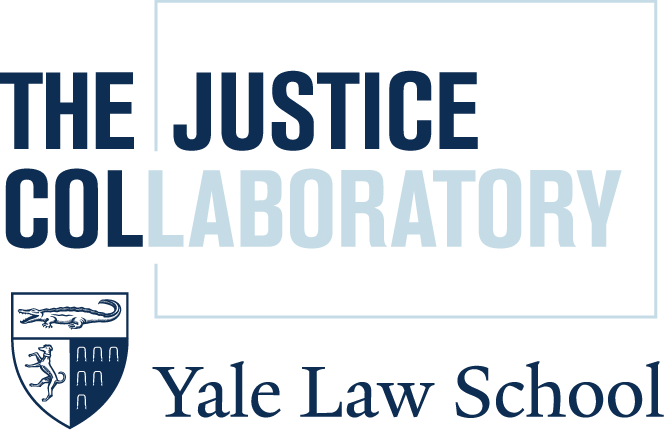The JC goes to Lisbon for LSA 2022
Justice Collaboratory member scholars and researchers were honored to present ground-breaking research at the 7th Global Law and Society Conference in Lisbon, Portugal. This year’s theme was Rage, Reckoning & Remedy, “in these times, a shifting world is upon us—one that demands a close examination of equality, freedom, and humanity. At the center of that critical examination are issues of race, colonialism, and the legacies of slavery. As communities demand an end to racial inequality, the urgency to grapple with the pains and realities of the past comes front and center.”
The JC team offered an examination of the following topics:
The Psychological Impact of Wrongful Convictions: The Role of Meaning Making in Recovery from Trauma.
Kathryn Thomas, Postdoctoral Fellow at Yale Law School’s Justice Collaboratory and Yale School of Medicine’s SEICHE Center for Health and Justice
Despite the high prevalence of wrongful convictions in the U.S., there is little research examining the psychological impact of wrongful convictions. Kathryn’s research looked at 74 exonerees and revealed dire rates of mental health disorders in exonerees, suggesting a need for policy reform to improve access to mental health treatment.
Discretionary Justice: Peering Inside the Psychological Black Box of Prosecutors’ Charging Decisions.
Trace Vardsveen, Postdoctoral Fellow in Law and Social Science at Yale Law School’s Justice Collaboratory
Tom Tyler Macklin Fleming Professor of Law and Professor of Psychology and Founding Director of The Justice Collaboratory
Scholars have long recognized the largely unfettered discretionary power of the American prosecutor to make pivotal decisions throughout the lifespan of a criminal case, including the decision to bring formal charges against an accused. This project is a first attempt to use a social-cognitive approach to crack open the psychological black box of prosecutors’ charging decisions.
Prosecutors and Procedural Justice
Camila Gripp, Director of Research at the Justice Collaboratory
Emily LaGratta, LaGratta Consulting
Ivana Bozic Post-Baccalaureate Research Fellow at the Justice Collaboratory
Recognizing that procedural justice could improve the experience of those who come into contact with prosecutors, The Justice Collaboratory in partnership with LaGratta Consulting, developed an intervention to improve practices and communication for a medium-size District Attorney’s Office in the western U.S., focusing on interactions between office staff and their supervisors, as well as office staff and members of the public. This presentation shared preliminary findings.
The Future of Progressive Prosecution: Behavioral Realism as Praxis
Phillip Atiba Goff Carl I. Hovland Professor of African American Studies and Professor of Psychology
One feature of reality that needs better integration into the legal system is the notion that systems—and not just individuals—often produce unjust outcomes. For prosecutors to pursue justice, they must be able to understand the ways in which systems produce injustice, starting with the criminal legal system. Leveraging findings from proprietary and public police data, it is possible to demonstrate how the criminal legal system creates criminals (rather than discovering them) and produces additional burdens on already burdened communities.
The Legal Regulation of Police Wrongdoing: What Is Perceived When Race Is Perceived?
Lily Hu Assistant Prof Philosophy, Yale University
Issa Kohler-Hausmann Professor of Law at Yale Law School and Associate Professor of Sociology at Yale.
This article asks whether the estimand at the heart of methodological debates about the causal effect of race are meaningful quantities in the first instance. Such debates have been central to important policy arenas such as police use of force, discrimination in arrests and prosecutorial acts, and college admissions.
Schooling as a White Good
Benjamin Justice, Professor and Chair of the Department of Educational Theory, Policy, and Administration Rutgers Graduate School of Education
It is popular among scholars to frame the basic problems of schooling in the United States as a tension between public goods and private goods. This project seeks to revise this framing by exploring schooling as a *white* good—how delivering white advantage and non-white disadvantage has been a central purpose of American schooling for two centuries. Based on extensive secondary historical research, we know these goods and harms have extended to nearly every facet of schooling, from control, to access, to what was taught, how, and by whom, to how it was paid for. This project seeks redirect our reform efforts away from unproductive “public” vs. “privatization” debates toward reforms more forthrightly engage the deep roots of racial inequality.
Understanding the Impact of Co-Worker and Peer Networks on Police Misconduct and Violence
Andrew Papachristos Professor of Sociology, Northwestern University and Director, Northwestern Neighborhood and Network Initiative (N3)
Explanations of police violence generally pit individual-level theories against macro-level theories resulting in what is parochially described as a debate between “bad apples” and “bad institutions.” Somewhere in-between the officers who engage in misconduct and the larger institution of policing reside the social networks in which officers work and socialize. This study investigates the social networks of police officers in the Chicago Police Department to understand how peer, partner, and other work networks contribute to police misconduct and violence.
Contact Camila Gripp (camila.gripp@yale.edu) if you would like to learn more about these presentations.
